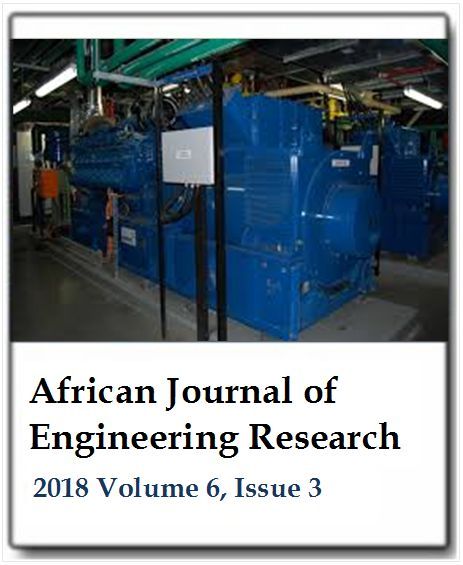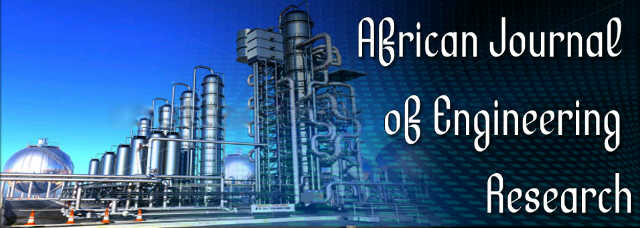Review of cogeneration and trigeneration systems
Chawki Lahoud, Joseph Al Asmar and Marwan BroucheAfrican Journal of Engineering Research
Published: October 17 2018
Volume 6, Issue 3
Pages 39-54
DOI: https://doi.org/10.30918/AJER.63.18.016
Abstract
There is an increasing concern about the need for energy security and impact of greenhouse gas emission all over the world. Energy efficiency has been identified as part of the solution to ensure the energy supply as well as lower the greenhouse gas emissions. CHP (Combined Heating and Power generation) and CCHP (Combined Cooling, Heating and Power generation) systems can contribute to the reduction of primary energy consumption and greenhouse gas emissions in residential and tertiary sectors, by reducing fossil fuels demand and grid losses with respect to conventional systems. The trigeneration systems are characterized by very high energy efficiency (80 to 90%) as well as a less polluting aspect compared to the conventional energy production since the waste heat is recovered from the engine cooling system and exhaust gases to use it for process heating, excess heat is also used to drive an absorption cooling system. In this paper, we will show a review on the studies of the trigeneration power plants in terms of components, modeling, optimization and decision-making techniques. For each section of the paper, a survey of previous studies with CHP/CCHP implementation is presented, along with a survey of the methods used in their modeling, optimization, and decision-making. New topics are discussed concerning the cogeneration and tri-generation systems specially in the modeling, optimization and decision-making techniques. In almost all reviewed works, CCHP systems are found to have positive technical and performance impacts.
Keywords: Cogeneration, CHP, trigeneration, CCHP, heat recovery, absorption chiller, decision-making, optimization.
Full Text PDFThis article is published under the terms of the Creative Commons Attribution License 4.0

